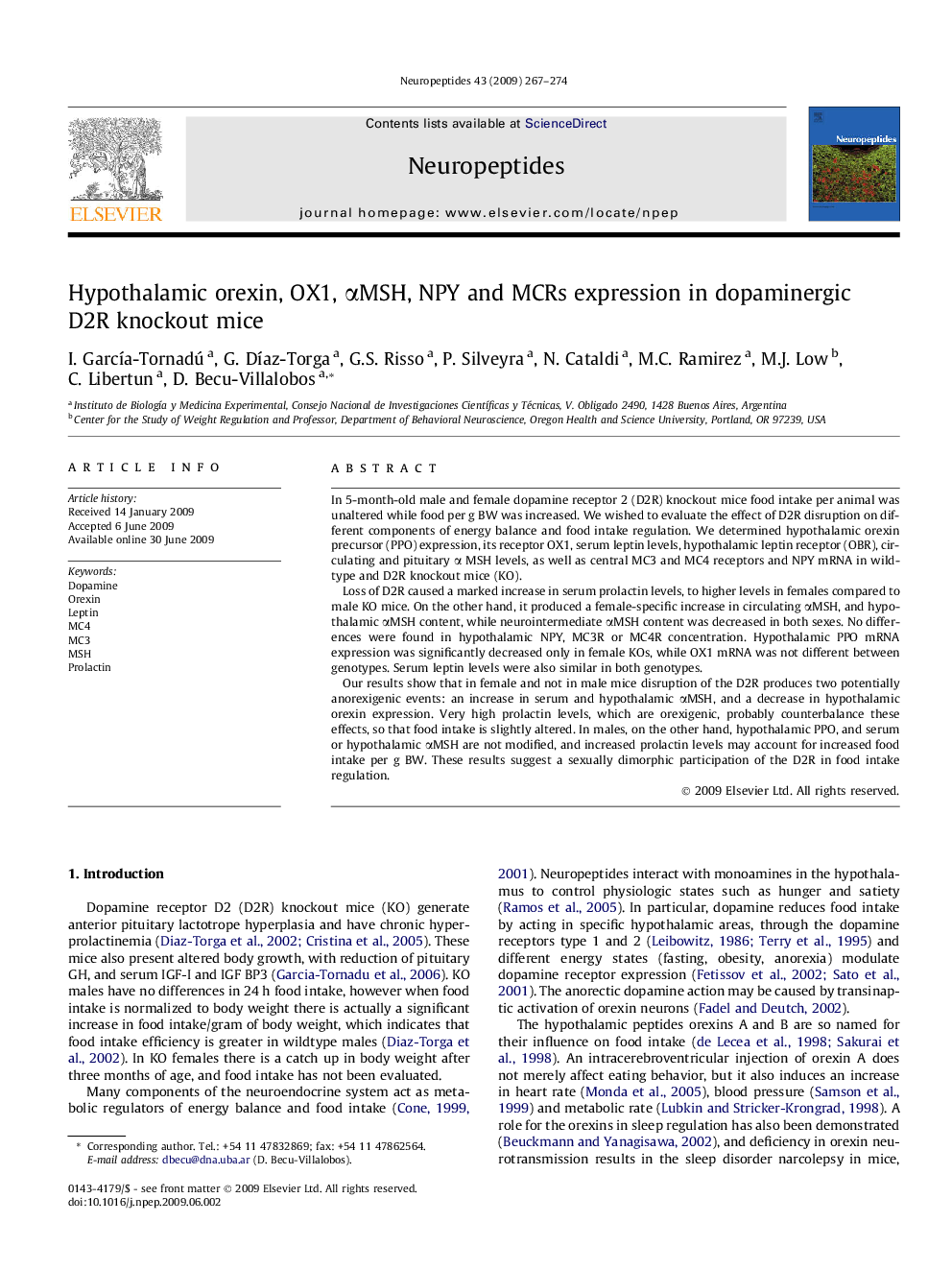| Article ID | Journal | Published Year | Pages | File Type |
|---|---|---|---|---|
| 2808504 | Neuropeptides | 2009 | 8 Pages |
In 5-month-old male and female dopamine receptor 2 (D2R) knockout mice food intake per animal was unaltered while food per g BW was increased. We wished to evaluate the effect of D2R disruption on different components of energy balance and food intake regulation. We determined hypothalamic orexin precursor (PPO) expression, its receptor OX1, serum leptin levels, hypothalamic leptin receptor (OBR), circulating and pituitary α MSH levels, as well as central MC3 and MC4 receptors and NPY mRNA in wildtype and D2R knockout mice (KO).Loss of D2R caused a marked increase in serum prolactin levels, to higher levels in females compared to male KO mice. On the other hand, it produced a female-specific increase in circulating αMSH, and hypothalamic αMSH content, while neurointermediate αMSH content was decreased in both sexes. No differences were found in hypothalamic NPY, MC3R or MC4R concentration. Hypothalamic PPO mRNA expression was significantly decreased only in female KOs, while OX1 mRNA was not different between genotypes. Serum leptin levels were also similar in both genotypes.Our results show that in female and not in male mice disruption of the D2R produces two potentially anorexigenic events: an increase in serum and hypothalamic αMSH, and a decrease in hypothalamic orexin expression. Very high prolactin levels, which are orexigenic, probably counterbalance these effects, so that food intake is slightly altered. In males, on the other hand, hypothalamic PPO, and serum or hypothalamic αMSH are not modified, and increased prolactin levels may account for increased food intake per g BW. These results suggest a sexually dimorphic participation of the D2R in food intake regulation.
